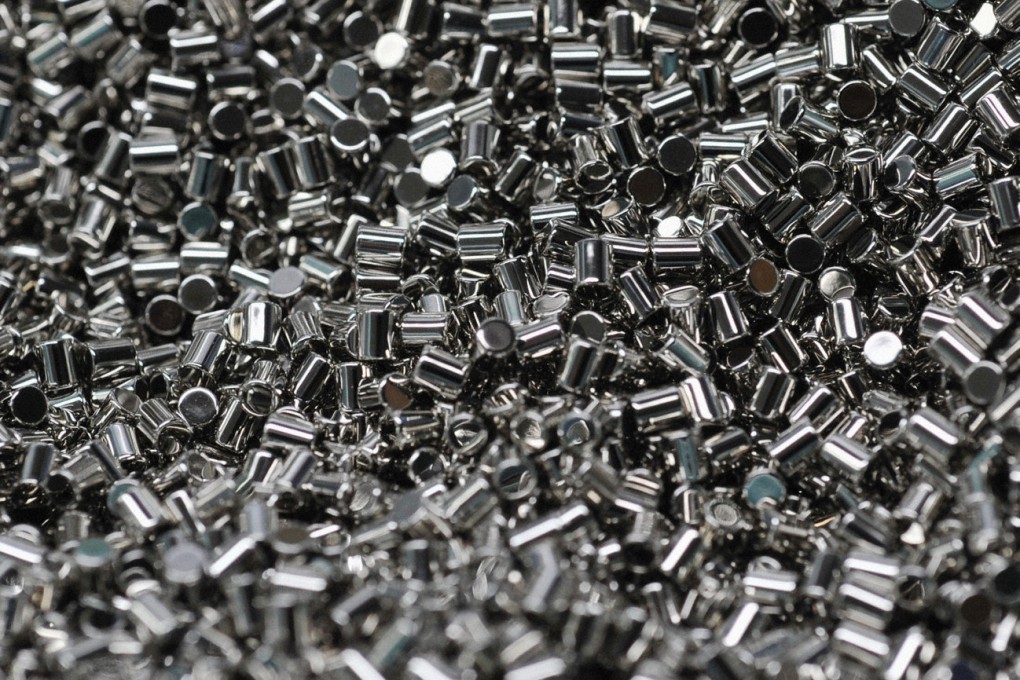End of rare earth patent expected to lead to growth in mainland exports
Mainland firms expected to use expiry of patent to step up production of key micro magnets

Some mainland producers of rare-earth magnets are seeking to use this month's expiry of a key patent held by Hitachi Metals to expand exports of the micro magnets used in products from motors to smartphones.

"Hitachi's whole patent package's base is this ingredient patent," said Li Weifeng, a Shanghai-based analyst with Everbright Securities. It was a "very basic" patent for the magnets, he said.
The end of the patent will pit the seven producers in the alliance and potentially others who try to tap into the market against Hitachi and eight mainland companies that have paid for the right to make and ship the magnet. An increase in exporters of the magnets could potentially cut prices of the product used in Apple's iPhones and Toyota hybrid-electric cars.
Hitachi holds more than 600 patents for rare-earth magnets globally, some of which it acquired after taking over Sumitomo Special Metals in the 2000s, spokesman Akio Minami said.
"The company considers it's almost impossible for other companies to commercially manufacture the magnets if avoiding all of our patent network," Minami said. "Since we don't know details of action by the seven Chinese companies, we refrain from making comments on this matter."